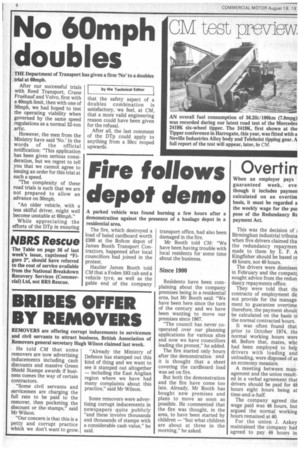Overt in
Page 6

Page 7

If you've noticed an error in this article please click here to report it so we can fix it.
icluded
When an employer pays guaranteed week, eve though it includes paymen calculated on an overtim basis, it must be regarded a the weekly wage for the pm pose of the Redundancy RE payment Act.
This was the decision of Birminghan industrial tribuna when five drivers claimed tha the redundancy repaymen made to them by E. F. A Kingfisher should be based or 48 hours, not 40 hours.
The drivers were dismisset in February and the compan3 sought advice from the redun dancy repayments office.
They were told that th( contracts of employment clic not provide for the manage. ment to guarantee overtime therefore, the payment shoulc be calculated on the basis oi the normal contracted hours.
It was often found that prior to October 1974, thE normal working hours werE 40. Before that, mates, whc had been employed to help drivers with loading and unloading, were disposed of as an economy measure.
A meeting between management and the union resulted in a verbal agreement that drivers should be paid for 48 hours eight hours being at time-and-a-half.
The company agreed the wage paid was 48 hours, but argued the normal working hours remained at 40.
For the union J. Askey maintained the company had agreed to pay 48 hours in return for an increase of normal working time to that figure.
Although the company had said no disciplinary action would be taken against drivers who refused to work more than 40 hours, the union would not support any such refusal because, in their view, 48 hours was the contractual figure.
The tribunal said that, as so frequently occurred in verbal agreement, the parties thought something had been agreed which had not.
The union were mistaken in thinking the hours were mutually varied; consequently, the normal working hours had remained at 40.
They ordered that an additional payment of £61.71 be made to one driver and £60.41 to each of the other four.




































































































